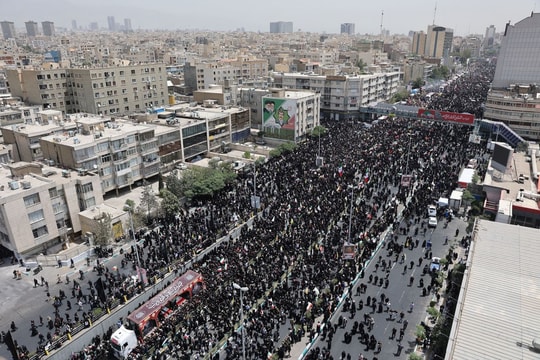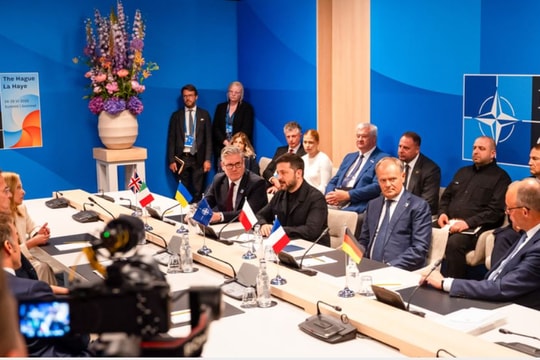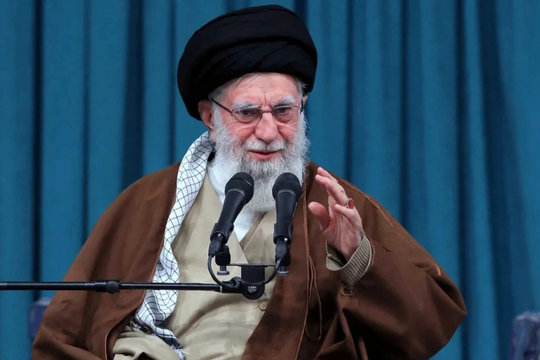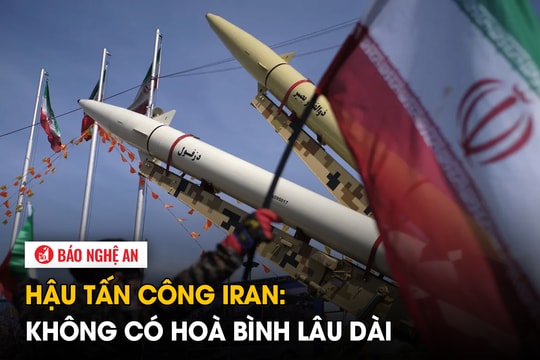Iran's Foreign Minister Just Left Moscow, Trump Immediately Calls for a Ceasefire: Russia's Unexpected Role That Few People Know About
Moscow's subtle influence in the Middle East standoff shows how diplomacy works when great powers don't choose sides.
According to an analysis by Farhad Ibragimov – a lecturer at the Faculty of Economics at RUDN University, a visiting lecturer at the Institute of Social Sciences of the Russian Presidential Academy of National Economy and Public Administration, published on RT's website, Moscow's diplomatic approach to the confrontation in the Middle East shows how diplomacy works when great powers do not "choose sides".
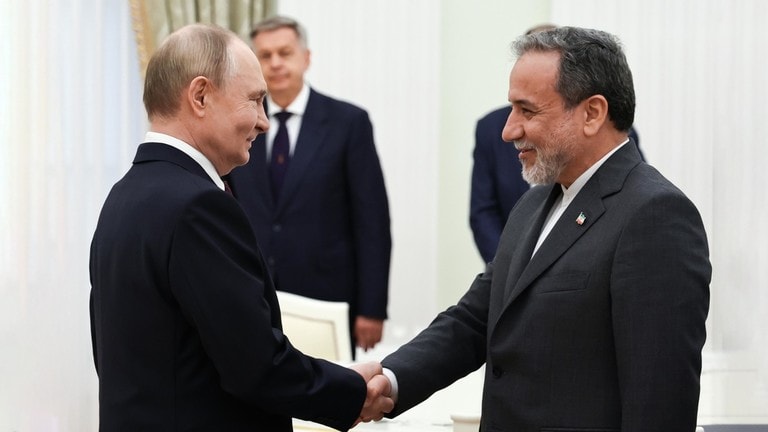
During his recent visit to Turkmenistan, Russian Foreign Minister Sergey Lavrov held talks with his counterparts and addressed students at the Institute of International Relations in Ashgabat. One of the central themes of his speech was the escalating conflict between Iran and Israel – a confrontation that not only affects global geopolitics but also has a direct impact on the security dynamics of Central Asia.
For Turkmenistan – which shares a border of more than 1,100 kilometers with Iran and whose capital is just a few miles from the frontier – the rising tensions pose serious risks. Beyond humanitarian concerns, the prospect of a wider war could awaken dormant extremist networks and destabilize the fragile internal balance. These risks extend beyond Turkmenistan to the southern former Soviet republics that maintain close political and military ties with Russia.
In this context, Lavrov’s call for de-escalation and regional stability has added weight. For Moscow, Iran is not just a partner, it is a pillar of the buffer zone protecting Russia’s southern flank. Instability in Tehran could spread across Central Asia, threatening Russia’s “near abroad.”
Diplomatic signals and strategic priorities
In January this year, Russia and Iran signed a comprehensive strategic partnership agreement, institutionalizing bilateral relations and hinting at a future formal alliance. Notably, just days after Israel's airstrikes on Tehran, Iranian Foreign Minister Abbas Araghchi flew to Moscow, met with President Vladimir Putin and held talks with Lavrov. He later described the visit as marked by "complete mutual understanding" and stressed Russia's support in an interview with Al-Araby Al-Jadeed.
Since then, Russia, along with China and Pakistan, has pushed for a new UN Security Council resolution calling for an immediate ceasefire and a roadmap for a political solution. As Russian envoy Vassily Nebenzia noted, the resolution is aimed at preventing further escalation.
Moscow has been cautious in its public statements, however. At the St. Petersburg International Economic Forum, Mr. Putin avoided inflammatory language toward Israel, instead emphasizing the need for a diplomatic solution acceptable to all sides. This cautious tone reflects Russia’s balancing act: deepening ties with Tehran while maintaining working—and in some cases warm—ties with Israel, including through military and humanitarian channels. That dual stance allows Russia to position itself as a potential mediator if either side seeks a negotiated solution.
Foreign Minister Araghchi's visit
On June 13, as Israeli airstrikes intensified, Russia was quick to condemn the attacks and express deep concern about the violation of Iran’s sovereignty. Mr. Putin went further, calling U.S. behavior in the region “unprovoked aggression.” Moscow’s message was clear: It opposes outside military intervention, without exception.
Days before Mr. Araghchi’s trip, Mr. Putin publicly revealed that Russia had offered Iran expanded cooperation on air defense systems, an offer Tehran has not yet pursued. This was not a rebuke, but more of a nudge: If the strategic partnership is real, Iran needs to reciprocate.
Moscow remains open to closer defense cooperation, including integrating Iran’s air defenses into a broader regional security framework. In retrospect, had Tehran accepted the offer earlier, it might have been better prepared to counter airstrikes. For Russia, security is measured by results, not words, and it expects its partners to act accordingly.
Legal boundaries of the partnership
Importantly, the 2025 strategic agreement between Moscow and Tehran does not include mutual defense obligations. It is not Russia’s equivalent of NATO’s Article 5, nor does it mandate automatic military support. As Mr. Putin has made clear, the treaty reflects trust and political coordination, not a blank check for joint war.
In practice, the treaty prohibits either party from assisting a third party in launching an act of aggression against the other. Russia has adhered to that standard – refusing to cooperate with parties it sees as aggressors, while expressing diplomatic solidarity with Iran and condemning destabilizing actions by the US and Israel.
In short, the structure of the partnership is built on respect for sovereignty and strategic balance, not on binding commitments. It focuses on military-technical cooperation, coordinated diplomacy through BRICS and the SCO, and a shared interest in regional stability. But it does not go so far as to drag Russia into wars that do not pose a direct threat to their national security.
Behind the scenes diplomacy?
One development that has drawn particular attention: Shortly after Araghchi’s visit to the Kremlin, US President Donald Trump abruptly called for a ceasefire and significantly softened his tone toward Iran. Aside from a few scathing posts on Truth Social, his message has become noticeably more moderate.
Ahead of his trip to Moscow, Mr. Araghchi stressed in Istanbul that consultations with Russia were “strategic, not ceremonial.” He made clear that Tehran sees the partnership as a platform for sensitive security coordination—not just diplomatic protocol.
Coincidental or not, the shift in US rhetoric suggests that Moscow’s influence may have quietly shaped the trajectory of events. After all, Russia is one of the few parties with open lines of communication with both Tehran and Tel Aviv. It is entirely possible that the Kremlin acted as a behind-the-scenes intermediary, ensuring at least a pause in hostilities.
Conclusion
Russia remains a calculating but influential player in the Middle East. Allegations that Moscow has not “stood up” with Iran are speculative and largely politically and legally unfounded. Russia offers solidarity, coordination, and leverage – not unconditional support for escalation.
And in a region where words matter as much as missiles, a subtle shift in language from Washington, coinciding with quiet talks in the Kremlin, may be more telling than any press release. After all, diplomacy often takes place away from the cameras.

